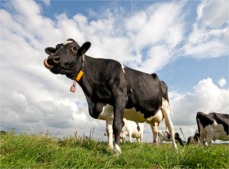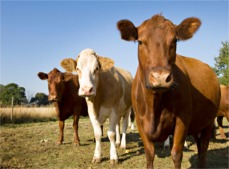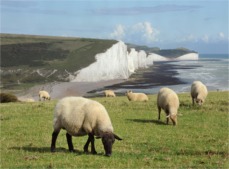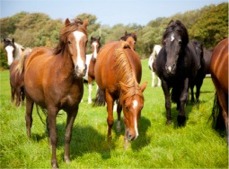Soil Mineral Dressings for Farming
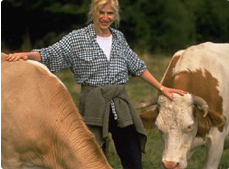
The simplistic answer to a mineral problem is to spray a crop, bolus a cow or drench a lamb to remedy an observed deficiency. This is inefficient because the crop, cow or lamb has already suffered from the mineral deficiency before it was noticed and a further time lag occurs before we get round to doing anything about it. In that time the crop damage is irreversible, the mastitis leads to lost revenue and the lamb continues to scour.
Tailored mineral dressings applied after soil analysis to correct any deficiencies are a preventive medicine. If you guard against deficiency problems they will not happen. So now the crop continues to grow unchecked, the dairy cow needs no treatment and continues to produce milk, the lamb continues to grow and goes to market weeks earlier. The further bonus is that the treated land produces more and what it produces is of better quality.
Livestock Pasture Dressings
Mixed Farming - Pros and Cons
Not so long ago mixed farming was the norm. Most farms were small, family run affairs, much of whose produce was sold locally. This meant that farmers were also retailers and the profitability was such that a very good living could be made on relatively few acres.
- Improved biodiversity and sustainability
- Increased rural employment prospects
- Reduced energy inputs and emissions
- Low wages, long hours, lack of housing
- Price competition from discount retailers
- Poor economy of scale
Pasture-Fed Livestock Association
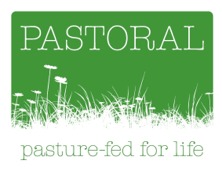 Field Science Ltd is proud to be both a member and supplier to other members, of the Pasture Fed Livestock Association.
Field Science Ltd is proud to be both a member and supplier to other members, of the Pasture Fed Livestock Association.
Grassland forms such an important part of the British countryside. It is an iconic symbol of rural landscapes and we naturally think of it as being the principal food for cows, sheep and all other animals that graze our fields..........

